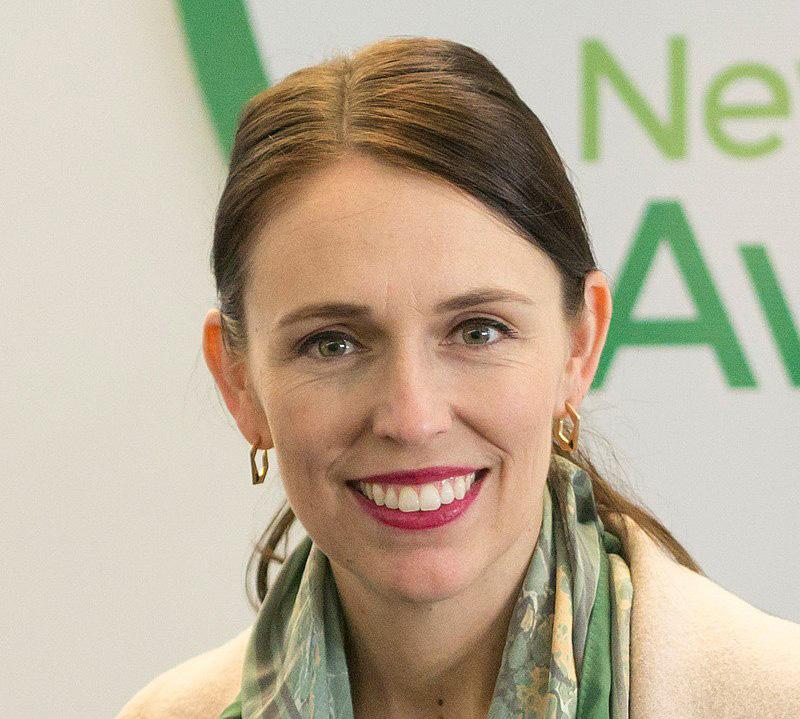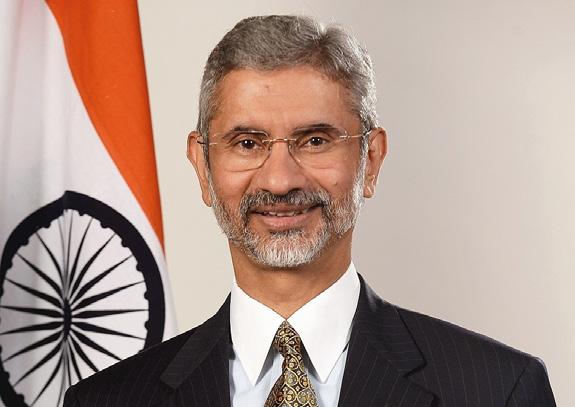
8 minute read
WORLD THIS WEEK
New Zealand: Prime Minister Jacinda Ardern resigns

Advertisement
On 19 January, New Zealand Prime Minister Jacinda Ardern announced her resignation, citing burnout as the reason. Ardern took office in 2017 at age 37, making her the youngest female to become any government leader. Her five-and-a-halfyear term was characterized by a global pandemic, increasing inflation, natural disasters, and mass shootings. Polls conducted in December last year, showed Ardern’s rating falling to 29 per cent while her Labour party witnessed their approval slipping down to 33 per cent, the lowest since 2017. Increasing social inequality, violent crime rates, and cost of living led to increasing discontent among New Zealanders. Ardern would continue to hold her office till 7 February, after which the current Education Minister, Chris Hipkins would serve as Primer until the October general elections.
Japan: Steady interest rate despite inflation

On 18 January, the Bank of Japan (BOJ) disappointed the market by sustaining its ultra-low interest rates despite increasing inflation within the Japanese economy. The short-term interest rate in Japan is minus 0.1 per cent while no interest rate is applied on its 10-year loans. BOJ governor, Haruhiko Kuroda stated this decision would help hike salaries, even though small businesses would suffer. The exchange rate reached Yen 131.2 per USD. The Consumer Price Index has been on constant raise for the past nine months. On 19 January, inflation hit 4 per cent for the first since 1982, therefore doubting Kuroda’s decision on maintaining the steady interest rate.
Sri Lanka: CARAT–2023 bilateral Naval exercise commences in Trincomalee and Colombo
On 19 January, US-Sri Lanka Bilateral Exercise, Cooperation Afloat Readiness and Training (CARAT) 2023, an annual bilateral exercise hosted by the US Pacific Fleet, kicked off at the Naval Shipyard in Trincomalee and Colombo harbour. CARAT, an annual bilateral exercise, is conducted to promote regional security cooperation, maintain and strengthen maritime partnerships, enhance maritime interoperability, and maintain a free and open Indo-Pacific region. Japan Self Defence Force and the Maldives National defence Force will join the exercise with Sri Lankan armed forces. The exercises will take place on land and at sea in Colombo, Trincomalee and Mullikullam from 21 to 26 January.
India: External Affairs Minister visits Maldives and Sri Lanka

On 18 January, India’s Minister of External Affairs Dr S. Jaishankar started an official three days trip to Maldives and Sri Lanka. He first visited the Maldives, where he was received by Maldivian Foreign Minister Abdulla Shahid. The Maldives Foreign Ministry said Jaishankar and Shahid were holding official talks and witnessed the exchange of several memorandums of understanding between the two countries. Later, Jaishankar attended the ceremony of the Hanimaadhoo International Airport expansion project and met with Maldives’ President Ibrahim Mohamed Solih and discussed bilateral relations between the two countries.
On 19 January, Jaishankar arrived in Sri Lanka, where he met with his counterpart Ali Sabry and discussed infrastructure, connectivity, energy, industry and health. He also discussed increasing investments from India to help Sri Lanka. On 20 January, Jaishankar met with Sri Lankan President Ranil Wickremesinghe and discussed the bilateral relations between the two countries, mainly about the debt-restructuring of Sri Lanka. Jaishankar also witnessed the High Impact Community Development Project (HICDP) signed between both countries.
Jaishankar said: “India decided not to wait on others but to do what we believe is right. We extended financing assurances to the IMF to clear the way for Sri Lanka to move forward.” Then he departed from Sri Lanka in the evening to India.
India: Controversial BBC documentary on Prime Minister
On 19 January, the Indian Ministry of External Affairs called the BBC documentary on Prime Minister Narendra Modi a “piece of propaganda.” The documentary, “India: The Modi Question” has claimed that the UK conducted an investigation into the Gujarat 2002 riots. Official Spokesperson of the Indian External Affairs Ministry said: “Let me just make it very clear that we think this is a propaganda piece designed to push a particular discredited narrative.” He added: “The bias, the lack of objectivity, and frankly a continuing colonial mindset, is blatantly visible. If anything, this film or documentary is a reflection on the agency and individuals that are peddling this narrative again,” On 19 January, the UK Prime Minister defended the Indian Prime Minister and said: “The UK government’s position on this has been clear and long standing and hasn’t changed. Of course, we don’t tolerate persecution anywhere, but I am not sure I agree at all with the characterization the honorable gentleman has put forward.”
Pakistan: Islamabad and Moscow agree to sign oil and gas agreement in March
On 20 January, Pakistan and Russia decided to sign an agreement by March 2023 for the supply of Russian oil and other petroleum products at discounted rates. This decision was reached during the eighth meeting of the Inter-governmental Commission on Trade and Economic, Scientific and Technical Cooperation of Pakistan and Russia. During the meeting, they also decided to address all technical issues related to insurance, transportation and payment mechanism. Additionally, they also signed three agreements for cooperation in the customs and aviation sectors. Earlier, the Russian delegation led by Energy Minister Nikolay Shulginov met with Prime Minister Shehbaz Sharif in Lahore, where “views were exchanged on supplying oil and gas from Russia to Pakistan on a long-term basis.”
Afghanistan: Russian envoy reiterates commitment to establishing peace for Afghans

On 15 January, Russian special envoy for Afghanistan Zamir Kabulov met with Acting Foreign Minister Amir Khan Muttaqi at the Russian embassy in Kabul. According to a statement from the embassy, the two sides discussed matters related to issues of regional security and problems of stabilization in Afghanistan. Additionally, the statement said that Kabulov reiterated Moscow’s commitment to the support for the Afghan people “in the interests of the soonest establishment of peace and the achievement of national reconciliation.”
Israel-Palestine: Jordan envoy stopped from entering the AlAqsa Mosque
On 17 January, Jordan summoned the Israeli ambassador and handed over a strongly-worded letter protesting the obstruction of Jordanian ambassador’s entry into Al-Aqsa Mosque in Jerusalem. The Jordanian Foreign Ministry in the letter, ‘reminded’ the Israeli government that the Jordan-run Jerusalem Waqf Department is the exclusive authority supervising the Al-Aqsa holy sites located in Jerusalem. Ministry’s spokesperson Sinan Majali said that “Israel, as an occupying power, must adhere to its obligations under international law and the international humanitarian law towards the occupied city of Jerusalem and its sanctities, especially the holy Al-Aqsa Mosque.”
Sierra Leone: President signs Gender Equality Act into law

On 19 January, Sierra Leone passed the Gender Equality and Women's Empowerment Act that ensures 30 per cent of the workforce in public and private jobs are women. President Julius Maada Bio signed the bill into a law and said: "For so long we haven't been fair to you." Under this law, women will be entitled to at least 14 weeks of maternity leave instead of the previous 12 weeks, and equal pay, training and treatment. Any employer found violating the law could attract a fine amounting to USD 2,500 and a breach of the credit fairness rules by financial institutions could attract prison sentences of at least three years.
Europe: Ursula von der Leyen introduces the ‘Green Deal Industrial Plan’ at Davos 2023

On 17 January, European Commission President Ursula von der Leyen introduced the EU’s Green Deal Industrial Plan’ at the World Economic Forum (WEF) Davos 2023. According to Von der Leyen, the Plan aims at making “Europe the home of cleantech and industrial innovation on the road to net zero.” The plan has four pillars, first is the regulatory environment ensuring efficient speed and access to reach net zero. The second pillar is increasing investments and financing of clean-technology production to keep the European market attractive and competitive. Third, the development of skills ensures a smooth transition and the fourth pillar is to support fair and open trade of clean technology for the benefit of all. Von der Leyen added that the EU would take up various policies and initiatives under the four pillars and existing initiatives to ensure an efficient implementation of the Plan.
The US: Week of layoffs by big tech companies
On 18 January, Microsoft laid of 10,000 of its professionals, equivalent to 5 per cent of it work force. On 20 January, Google also fired 12,000 of its employees. The companies have cited low interest rate regime and re-calibrating thier supply chain networks. According to Reuters, the objective was to create high density offices and tackle inflation. Sundar Pichai CEO of Alphabet and Google said: “These are important moments to sharpen our focus, reengineer our cost base, and direct our talent and capital to our highest priorities.
About the Authors
Rashmi Ramesh, Akriti Sharma, and Ankit Singh are PhD scholars in the School of Conflict and Security Studies at the National Institute of Advanced Studies. Avishka Ashok, Padmashree Anandhan, Anu Maria Joseph, Apoorva Sudhakar, and Sethuraman Nadarajan are Research Associates at NIAS. Bhoomika Sesharaj, Madhura Mahesh and Sayani Rana are Research Interns at NIAS. This report has been modified by India News for space considerations.





